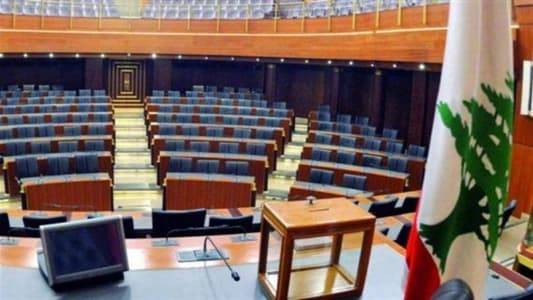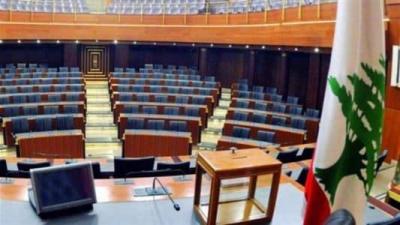The Lebanese Parliament stands just days away from an inevitable hot confrontation that is expected during the legislative session, should it take place next Thursday. This confrontation is between a group of lawmakers who have decided to boycott the session, arguing that priority should be given to electing a president, and another group that believes the inability to elect one does not prevent necessary legislation since it is not acceptable to continue disrupting sessions until a president is elected.
The planned legislative session is set to proceed if the quorum is met, and it awaits its agenda, which will be prepared by the parliament's bureau in a meeting today led by Speaker Nabih Berri. According to Berri, the quorum for the session is now secured unless the "Strong Lebanon" bloc, headed by MP Gibran Bassil, reconsiders its position and participates to counter the attacks it has begun to face from its Christian opponents, who are leading the call for a boycott.
While the legislative session, if held, would be the first after the presidential vacancy that began at the end of October 2022, those opposing it argue that by doing so, they adhere to the constitutional text, which keeps sessions open until a president is elected. However, the participation of the "Strong Lebanon" bloc alone is not enough to ensure a quorum unless MPs from the "Democratic Gathering," led by MP Taymour Jumblatt, and several Sunni MPs affiliated with the "National Moderation" bloc participate as well. The latter condition stipulates that the extension for the Director General of General Security, Major General Abbas Ibrahim, should also apply to the extension for the Director General of Internal Security Forces, Major General Imad Othman, who is set to retire in May 2024.
The "National Moderation" bloc has informed relevant parties that its attendance at the legislative session hinges on the extension for General Othman, and it will announce its position during a meeting tomorrow in light of the session's agenda. Additionally, it has been reported that the "Democratic Gathering" held a joint meeting with the "Progressive Socialist Party," chaired by its leader Walid Jumblatt, keeping its sessions open and linking participation in the session's agenda to a joint meeting tomorrow.
Sources from the parliament quoted Jumblatt as saying that the party and the "Democratic Gathering" maintain their position in attending sessions dedicated to electing a president, as well as cabinet meetings and legislative sessions. He warned, on the other hand, that the necessary legislation session could provide parliamentary cover for political patronage.
Questions arose regarding the reasons behind the "Strong Lebanon" bloc's participation in the necessary legislation session and whether Bassil aims to secure the extension for the general directors who are not part of military or security services, specifically those aligned with him. Additionally, inquiries were made about how Bassil would justify to his supporters the inconsistency between his boycott of cabinet sessions and his participation in the legislative session. Furthermore, what he would say to Maronite Patriarch Bechara Al-Rahi, who emphasized in his sermon yesterday that the parliament is an electoral body and not a legislative one in the absence of a president, and that there is no legitimacy for the government's and parliament's work during a presidential vacancy.
Conversely, political sources questioned whether it would be impossible to extend for security and military leaders without the parliament convening in a legislative session. They pointed out that the issue does not solely concern extending the terms of security and military leaders to avoid extending to military institutions that continue to fulfill their duties while the country edges towards collapse.
The same sources also wondered whether the political entities supporting the legislative session possess information suggesting that the presidential vacancy might be prolonged, and that there is a necessity to prevent vacuums in security and military institutions, which all political forces, diverse as they are, agree play a role in maintaining stability, fortifying civil peace, and countering those who might disrupt security, especially without any political background to the incidents occurring from one area to another.
However, the surprise came when Army Commander General Joseph Aoun preemptively informed relevant parties that he distances himself from the extension for security and military leadership since he is set to retire on January 1, 2024. Thus, he possesses enough time to remain at the head of the military institution to perform his role in maintaining stability and preventing its disruption.
As for why General Aoun does not show enthusiasm for an extension, and what reasons he relies on to defend his position, it must be stated that he does not seek an extension for himself after the postponement of the retirement of three military council members, which hindered their regular meetings.
In this regard, a political source believes that extending General Aoun's term may create confusion in military hierarchy. Furthermore, he does not wish others, particularly Bassil, to view him as indebted to them for participating in the extension session while he continues his campaign against him and places a veto on his election as president, despite not having announced his candidacy. It is commonly understood in Lebanon that the army commander leaves his position immediately upon the election of a new president, who is supposed to consult him regarding the appointment of his successor.




